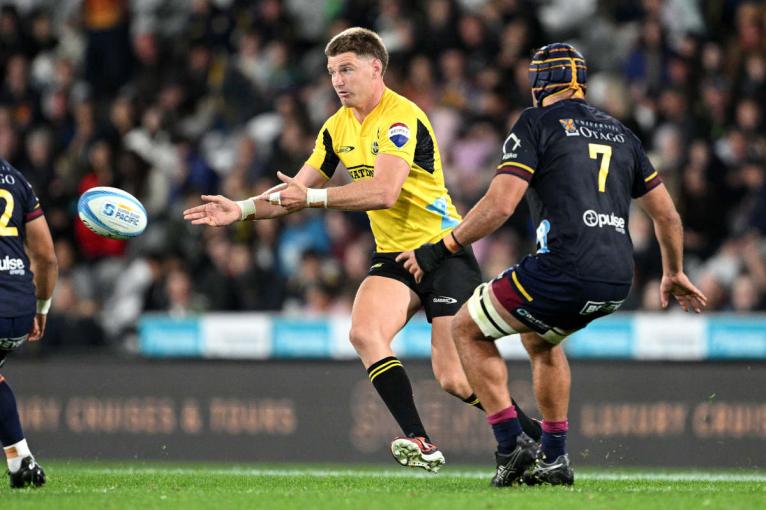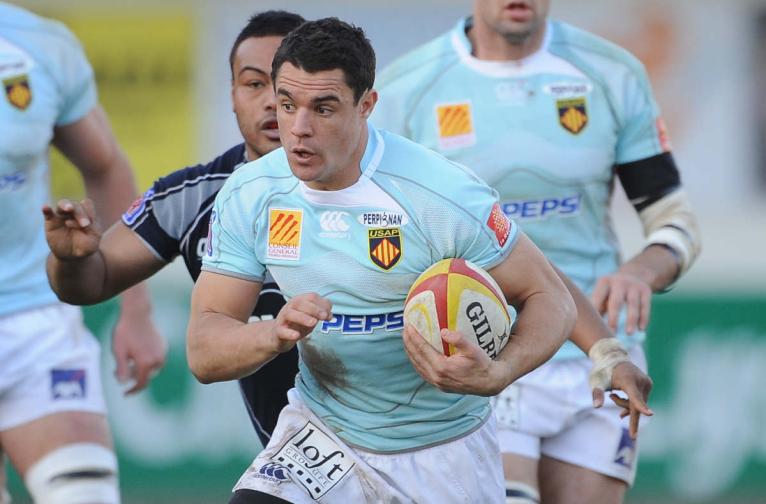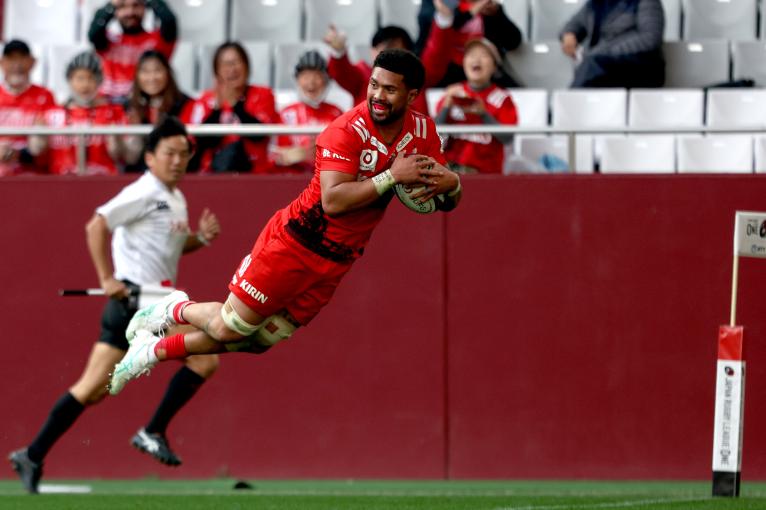There’s a feeling in New Zealand that Jordie Barrett’s short-term contract with Leinster may bring an end to the era of sanctioned sabbatical deals for leading All Blacks.
It’s become increasingly difficult for New Zealand Rugby to justify why it continues to say protecting the domestic game is among its highest priorities while it allows its elite tier of talent to disappear as they please to avoid playing in Super Rugby Pacific.
Currently, the All Blacks captain Sam Cane and vice-captain Ardie Savea are playing in Japan, along with two-times World Player of the Year Beauden Barrett.
And now, at the end of this year, Jordie Barrett will stay in Europe when he’s over there with the All Blacks, and spend the following six months with Leinster in a deal that will unquestionably sharpen his rugby skills and broaden his outlook, but will leave yet more questions hanging over the future of Super Rugby and NZR’s hotch-potch high-performance strategy which appears to be conflicted and lacking in consistency.

The damage these sabbaticals do to Super Rugby Pacific at a time when it is fighting for survival is almost catastrophic.
It robs the competition of its biggest names, creates the perception of it being a low value entity and endorses this idea that Super Rugby is something the players endure rather than enjoy.
And this is hurting the competition financially as Super Rugby clubs are under financial duress, with the Hurricanes recently reporting a $1.4m loss, leading to board member Russell Poole stating: “Absolutely it’s a concern. One hundred per cent it is.”
Losing Barrett for the 2025 season is hardly going to help the Hurricanes financially, and nor is his absence – and the probable absence of other key All Blacks on sabbaticals during this World Cup cycle – going to help NZR drive an improved broadcast contract from Sky TV.
The problem for NZR is it opened Pandora’s Box back in 2008 when it first came up with the sabbatical concept.
So too are the clubs upset that they have to strictly manage All Blacks players’ workloads to prescribed formulas – everyone at the World Cup has to miss at least two games this season – while NZR sanctions sabbatical contracts whereby the leading talent can be run into the ground by foreign clubs.
Pressure to stop these departures is also going to come from the newly formed Super Rugby commission which is looking to better market and promote the competition to a wider audience.
Again, it’s hard to do that when so many big names are sanctioned to leave by the competition’s owner.
The problem for NZR is it opened Pandora’s Box back in 2008 when it first came up with the sabbatical concept.

The original deal was with Daniel Carter, who was going to leave New Zealand permanently when his contract finished in 2008.
But NZR came up with a plan – to sanction a six-month deal with Perpignan on the condition he signed a longer-term contract to come back and stay through to the next World Cup.
It was a smart piece of business because it kept Carter in New Zealand for another seven years – in which time he helped the All Blacks win two World Cups and established himself as arguably the greatest No 10 in history.
Richie McCaw didn’t play Super Rugby in 2012 and came back to the game – after some travel and rest – rejuvenated. Conrad Smith skipped the end-of-year tour to Europe in 2013 to build schools in Africa.
NZR had set a precedent and so senior players saw what Carter had been offered and wanted the same thing.
The national body was happy to accommodate requests but having seen Carter seriously damage his Achilles tendon four games into the Perpignan deal, the thinking was adjusted to encourage senior players to take time off rugby to rest and recuperate rather than keep playing.
It proved to be yet another smart move as Richie McCaw didn’t play Super Rugby in 2012 and came back to the game – after some travel and rest – rejuvenated.
Conrad Smith skipped the end-of-year tour to Europe in 2013 to build schools in Africa; Ben Smith missed the back half of the 2017 Test season and many players agreed deals where they returned to Super Rugby halfway through the competition.

The sabbatical concept promoted players taking a genuine sabbatical – they had earned the right to take time off to indulge in something they wanted to do.
But in late 2018 the sabbatical concept was challenged by the probability that the Japanese league was going to switch its dates to accommodate the 2019 World Cup and it was going to be possible for New Zealand players to effectively play two seasons there, but only miss one Super Rugby campaign.
Sam Whitelock, Beauden Barrett and Brodie Retallick all signed contract extensions to stay in New Zealand until 2023, but they came with sabbatical clauses that were going to allow them to play in Japan.
NZR can stomach its talent skipping a Super Rugby season to play in Japan’s League One, because they think it is relatively soft, while it also provides the players with a massive pay boost.
In the end, the double season didn’t eventuate but there was a new precedent set that NZR was happy once again to sanction sabbatical deals where players played rather than rested.
Except, the unwritten rule in all this is that they play in Japan where the seasons align and the rugby, while fast and competitive, is not as confrontational.
NZR can stomach its talent skipping a Super Rugby season to play in Japan’s League One, because they think it is relatively soft, while it also provides the players with a massive pay boost.
And it has become the way of the New Zealand system that once a senior player has accumulated close to 70 caps, they qualify for a sabbatical and off they go to Japan.

But now Barrett has changed that dynamic by turning down an offer to play for Toyota Verblitz to instead join Leinster for six months later this year.
As Barrett said of his Irish venture: “As a whole, I think this move is going to be really challenging, but a positive challenge.
“Heading north to different conditions, different teams, different referees – I think it will open my game up, make me see the game differently and I’ll ultimately bring the best bits back to New Zealand rugby and into a Test jersey, ideally, at the end of it.
“The reality of being a professional athlete is that you’ve only got a small window to have these opportunities and I’d love to be sitting there in 20 or 30 years with my kids or grandkids, knowing that I left no stone unturned, and I took up this opportunity to better myself.”
The heavy-handed, micro-management of player workloads through Super Rugby has long been a source of contention for clubs. This year, the Chiefs rested Damian McKenzie for the encounter against the Crusaders – the only game the defending champions have won.
Barrett, 27, is right that his time in Ireland will be challenging, and it will improve him as a player.
But it will also require him to play 18 months without a break – with the last six being in the Irish winter, where he will be expected to front up in hugely physical and confrontational contests in the URC and Champions Cup.
He’ll be in Ireland during the Six Nations and so despite All Blacks coach Scott Robertson saying that he’d spent months discussing his No 12’s mental and physical well-being with Leinster, Barrett will likely play some games while many of his midfield team-mates are on international duty.
And this is the bit many are finding hard to understand. Barrett, a prized asset, will be sanctioned to play 18 months without a break – possibly longer if he goes straight into the All Blacks’ July campaign when he returns – yet Super Rugby clubs in New Zealand have to heavily manage the workloads of their international players.
The heavy-handed, micro-management of player workloads through Super Rugby has long been a source of contention for clubs. This year, the Chiefs rested Damian McKenzie for the encounter against the Crusaders – the only game the defending champions have won.
The other unsustainable problem created by these sabbatical deals is that it makes a mockery of NZR’s All Blacks eligibility policy.

Barrett, like his brother Beauden, Savea and Cane, will be immediately eligible for the All Blacks despite not playing in the preceding Super Rugby campaign.
In essence, these players, if they find themselves involved in the July tests, will have been picked from offshore. Yet Richie Mo’unga, who is also playing in Japan, will not be eligible.
Exceptions create ill-feeling and a sense that the playing field is not level, and Super Rugby clubs can’t fathom why Leinster are enabled to boost the commercial value of the URC and Champions Cup by having access to Barrett’s image and profile, while their competition continues to battle for survival.
If the sabbatical concept started as a good idea, it no longer is and Super Rugby needs better protection and a more consistent high-performance plan from New Zealand.



Comments
Join free and tell us what you really think!
Sign up for free